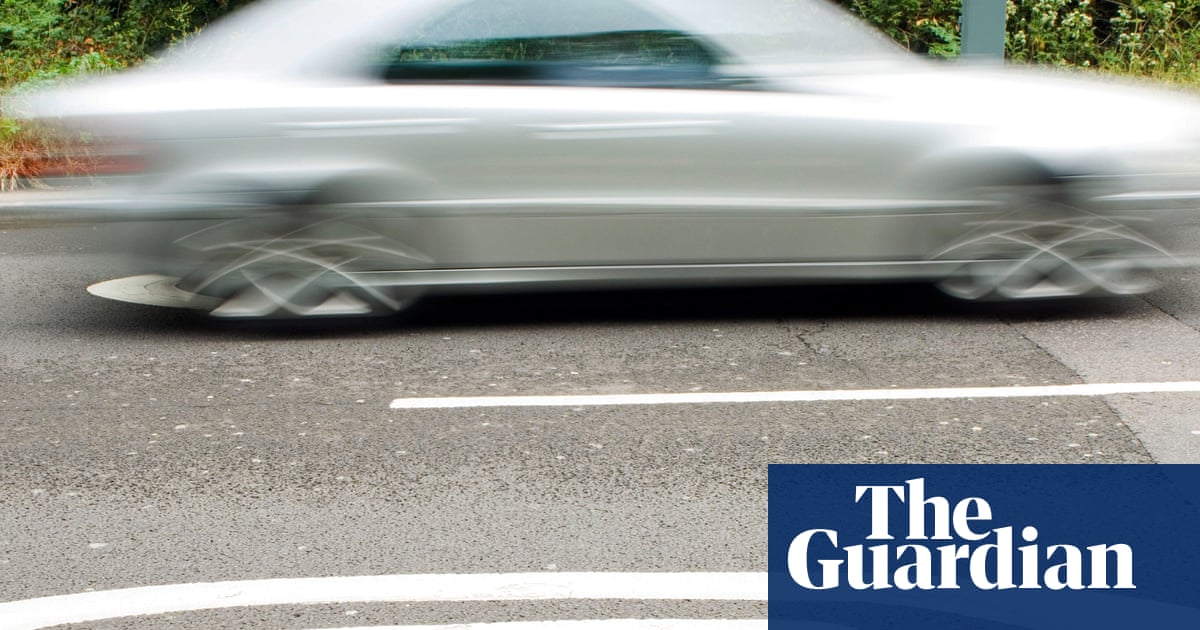All new cars must have the devices from 7 July, adding fuel economy as well as safety. Will mpg become the new mph?
In the highway code and the law courts, there is no doubt what those big numbers in red circles mean. As a quick trip up any urban street or motorway with no enforcement cameras makes clear though, many drivers still regard speed signs as an aspiration rather than a limit.
Technology that will be required across Europe from this weekend may change that culture, because from 7 July all new cars sold in the EU and in Northern Ireland must have a range of technical safety features fitted as standard. The most notable of these is intelligent speed assistance – or colloquially, a speed limiter.
The rest of the UK is theoretically free, as ministers once liked to put it, to make the most of its post-Brexit freedoms, but the integrated nature of car manufacturing means new vehicles here will also be telling their drivers to take their foot off the accelerator. Combining satnav maps with a forward camera to read the road signs, they will automatically sound an alarm if driven too fast for the zone they are in.



In the very rural areas I would assume there to be ambulance/rescue helicopters, boats and snowmobiles etc that get dispatched. I was born and lived most of my life in a very rural area with the closest actual hospital with proper 24/7 er and more advanced surgery etc capabilities being some 160km away. Roads and road-bound vehicles just aren’t a thing you’d want to use or depend on in an emergency, if you live that rurally. So that’s really not a good argument to make, in my opinion, though maybe if you lived in the US, you wouldn’t have that and if you did, it’d bankrupt you if you made use of it, so you were going to be fucked either way. It’s dangerous to depend on rural roads if your only recourse is speeding. That’s just endangering everyone else too, be it only you as the driver the extra casualty. So the answer isn’t keeping the current dangerous system dangerous, rather maybe reconsider the way emergency response and general welfare and healthcare is organized and structured… if something like this would one day push you guys there, then I’d consider that only good. This is assuming you are from US of course. But I can’t really see any other country lacking basic services and needs like that, if internet and proficiency in English language as well as access to cars is taken as granted, which would mostly rule out third world countries since we are talking about rural areas.
That, in particular, is especially fucked in the US. Life Flights/medevac helicopters are almost always private companies, and each insurance company has to negotiate with every medevac company separately. You can easily end up with a $100,000 bill from a helicopter ride to a trauma center because your insurer didn’t negotiate rates with the one company that was operating in your area, and you have no legal recourse aside from declaring bankruptcy.
Should we have socialized or otherwise single-payer medicine in the US? Absolutely. But are we realistically going to do that before some id10t decides to legislate ‘smart’ cars that prevent you from exceeding what the car believes to be the speed limit? Nope. (For reference, I’ve driven a car with driver assist; it tried to jerk the wheel out of my hands a few times because it thought the road was turning when it wasn’t, because it was misreading the lines on the road and the signs.)